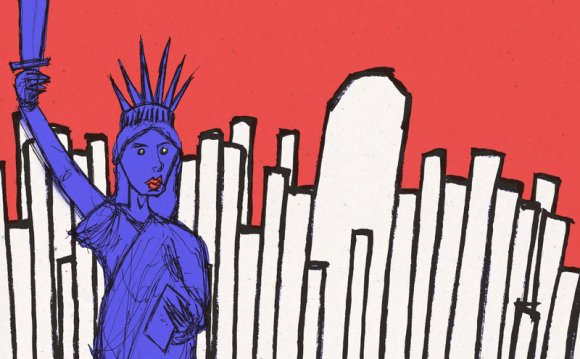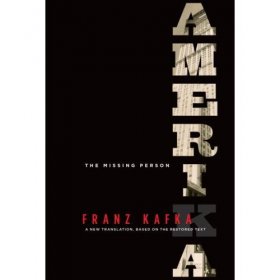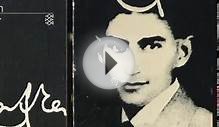
 I experienced a (very, very small) Kafkaesque minute when Mark Harman’s brand new interpretation of Franz Kafka’s unfinished very first book, Amerika very first reached Biblioklept Overseas Headquarters. Wanting to compare the form of Harman’s interpretation to Edwin and Willa Muir’s work, I sought out my old copy of Amerika. I figured I’d re-read the first section, “The Stoker, ” really the only the main novel that Kafka reworked (it absolutely was published as a short tale). So I seemed and seemed plus it turns out that I don’t very own Amerika, despite the obligatory Kafka stage we went through in highschool (followed closely by a post-bac Kafka phase many years later). But I knew I’d read “The Stoker, ” or at the least it seemed likely that I’d read “The Stoker, ” also it turned up in an accumulation of Kafka’s brief stories that I own–only it was the Donna Freed interpretation. And so I re-read it, just I’m unsure that I happened to be re-reading it. I didn’t keep in mind any of it, other than the famous opening picture of a Statue of Liberty equipped with a sword. I’m nonetheless not sure that We ever before read it before now; that's, I’m uncertain that I read the Muir interpretation that Harman seeks to amend. I suppose it doesn’t matter, therefore appears appropriate that a Kafka review start out with a meandering untrue start. In which had been we?
I experienced a (very, very small) Kafkaesque minute when Mark Harman’s brand new interpretation of Franz Kafka’s unfinished very first book, Amerika very first reached Biblioklept Overseas Headquarters. Wanting to compare the form of Harman’s interpretation to Edwin and Willa Muir’s work, I sought out my old copy of Amerika. I figured I’d re-read the first section, “The Stoker, ” really the only the main novel that Kafka reworked (it absolutely was published as a short tale). So I seemed and seemed plus it turns out that I don’t very own Amerika, despite the obligatory Kafka stage we went through in highschool (followed closely by a post-bac Kafka phase many years later). But I knew I’d read “The Stoker, ” or at the least it seemed likely that I’d read “The Stoker, ” also it turned up in an accumulation of Kafka’s brief stories that I own–only it was the Donna Freed interpretation. And so I re-read it, just I’m unsure that I happened to be re-reading it. I didn’t keep in mind any of it, other than the famous opening picture of a Statue of Liberty equipped with a sword. I’m nonetheless not sure that We ever before read it before now; that's, I’m uncertain that I read the Muir interpretation that Harman seeks to amend. I suppose it doesn’t matter, therefore appears appropriate that a Kafka review start out with a meandering untrue start. In which had been we?
Yes. Harman’s interpretation. With Amerika, Harman goes on a task he started along with his interpretation of some other unfinished Kafka book, The Castle. (This guide had been published in 1998, and I also listened to the sound book last summer, incidentally, and it also really was, good). Harman’s translations make an effort to restore some of the laughter, ambiguity, and modernism that Muirs’ early translations occlude and only their spiritual readings. Harman additionally takes great discomforts to eliminate Max Brod’s editorial treatments, even going as far as maintain several of Kafka’s constant solecisms (“Oklahoma” is restored to Kafka’s initial – and constant – “Oklahama”). Now, my Kafkaesque confusion over whether or not I’ve read the Muirs’ interpretation of Amerika stops me from commenting here on Harman’s obvious restoration of Kafka’s laughter, but i actually do believe Amerika is often funny, and often terrifying. Its protagonist Karl finds himself in a parallel-universe The united states (one built wholly from Kafka’s imagination, and launched in its surreal glory through the orifice picture of a Statue of Liberty armed with blade), one in which he’s consistently misled, swindled, cornered, cramped, and generally mistreated by numerous enigmatic authority figures (yes, its Kafkaesque, if you’ll enable the tautology). As noted, Kafka never completed composing the guide (or any of his three books, for example), and Harman tends to make no attempt to reconcile the plot, opting rather to simply replicate (in honest English, naturally) what Kafka penned.
Amerika isn't the place to start for everyone new to Kafka’s work–i suggest readers whom weren’t turned-off by their senior school English teacher’s inept bungling of The Metamorphosis begin with a collection of the short stories. However, i do believe Harman’s interpretation is not only required for fans who want to rediscover an old specialty, In addition think that it'll quickly become the definitive translation. It’s modern and terse and funny, plus it will pay subtle respect towards dialogic interplay between Karl’s point of view which associated with omniscient narrator, usually generating moments of extreme and tasty irony. Reading a translation of Kafka centering on their oft-neglected humor brought to mind the late great David Foster Wallace’s article, “A group of Remarks regarding the Funniness of Kafka, from Which inadequate Has Been Removed” (see clearly right here or have the mp3 of DFW reading it here). Listed here is Wallace, outlining the reason why American undergrads don’t get Kafka’s humor:
Which is this, i believe, that makes Kafka’s wit inaccessible to kids who our tradition features taught to see jokes as activity and activity as reassurance. It’s not too pupils don’t “get” Kafka’s humor but that we’ve taught all of them to see laughter as one thing you receive — the same way we’ve taught all of them that a self is one thing you merely have actually. Not surprising they are unable to appreciate the truly main Kafka joke — your horrific struggle to establish a human self leads to a self whose mankind is inseparable from that horrific battle. Our unlimited and impossible journey toward house is in fact our residence.
Wallace’s observance stealthily acknowledges why the heroes of Amerika and The test plus the Castle never reach in which they’re going, why Kafka could never wrap up his big tales. Kafka, initial contemporary journalist, embraced the “horrific battle” of mankind and never tried easy reconciliation or pat conclusions. Harman’s new translation brings this critical aspect of Kafka’s writing to the fore, and he achieves this in the most simplistic manner: unobtrusively letting Kafka’s words stand on their own. Recommended.
RELATED VIDEO












